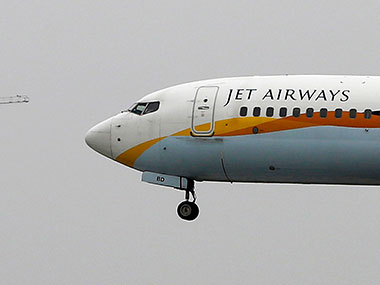Rahul Gandhi isn’t the only non-executive authority undermining the decisions of the Union Cabinet, which in theory is the highest decision making body in the land. The Supreme Court, on October 4, decided to hear BJP leader Subramanian’s Swamy’s PIL to quash the Jet Airways-Etihad FDI deal (worth over Rs 2,000 crore) which had been cleared by the Union Cabinet on October 3.
Should the Supreme Court be in the business of reviewing Cabinet decisions? For that matter, should other courts do the same? The Delhi High Court is hearing Swamy’s plea to quash the Government’s decision to allow Tata-Air Asia to set up a new airline.
The point is this. It is quite easy to find some flaw in every decision the Government makes. Policymaking can be good or bad (depending on different views), but just because a policy decision may be disagreeable to some doesn’t make it illegal or mala fide.
[caption id=“attachment_1138151” align=“alignleft” width=“380”]
 Should the Supreme Court be in the business of reviewing Cabinet decisions? For that matter, should other courts do the same? The Delhi High Court is hearing Swamy’s plea to quash the Government’s decision to allow Tata-Air Asia to set up a new airline.
Reuters[/caption]
The courts have no business poking their noses into the business of the executive. By doing so they are creating more uncertainty and further vitiating the climate for investment. The UPA hasn’t helped the cause of the executive - it’s been weak in exercising leadership, unable to defend its turf and all too often guilty of mala fide.
Consider the Jet-Etihad deal. Subramanian Swamy alleges that the Abu Dhabi-based Etihad only agreed to pay Rs 2,000 crore for 24 percent equity in the struggling Jet Airways because of a sweetheart deal on bilateral air rights, under which the Government of India has allowed Etihad to substantially increasequota of seats on the lucrative Gulf-India sector. The ‘co-incidental’ timing of the bilateral (between governments) and the FDI deal (between private parties) may be suspicious, but the Government does have the right to offer policy concessions to attract investment, even for particular firms. It is a kind of “industrial policy”.
Impact Shorts
More ShortsNow, in principle, industrial policy is not efficient (nor usually transparent). In fact, it is the kind of thing the Government should avoid for the sake of competition and free markets. But that does not make it illegal. The Supreme Court has no right to review the Cabinet unless there are prima facie charges of bribery or violation of norms. Nobody has alleged that yet in Jet-Etihad.
Former telecom minister Arun Shourie made a strong case for making a distinction between a policy decision and its faulty/illegal execution. In the heat of the 2G scam, he consistently tried to differentiate the first-cum-first-serve policy of granting spectrum (which the NDA Government started) with A. Raja’s actual execution of that policy. In principle, there is nothing illegal in the Government under-pricing spectrum. It is a form of subsidy or ‘industrial policy’ for the telecom industry. But there is a problem when the norms laid down for following first-come-first-serve are violated. Raja did all kinds of manipulations; for example by changing cut-off dates arbitrarily and at the last minute to favour certain players. That is what led to suspicions of mala fide. Similarly, in Coal Gate it is not the under-pricing of coal blocks per se that is the problem but the fact that no procedures were followed; for example, why did the Screening Committee not keep detailed minutes of meetings?
Unfortunately, the legacy of 2G and Coalgate has meant that every policy decision of the UPA is viewed suspiciously. The UPA hasn’t helped its cause by unnecessarily complicating policy. If, instead of the economically irrational policy of imposing caps on FDI, the Cabinet had allowed 100 percent FDI in aviation, Subramanian Swamy would have no case to make against Tata-AirAsia (he is alleging violation of FDI norms). Similarly, by allowing 100 percent FDI in multibrand retail, instead of 51 percent, there would be no fracas over whether Bharti-Walmart has violated the law of the land.
In practical terms, the UPA Government has left the door wide open for courts to be the ultimate arbiters of the investment climate in India. That is not an attractive proposition for anyone looking for a stable, transparent environment. The UPA and courts have conspired to put India at the top of the unease-at-doing business stakes.


)

)
)
)
)
)
)
)
)



